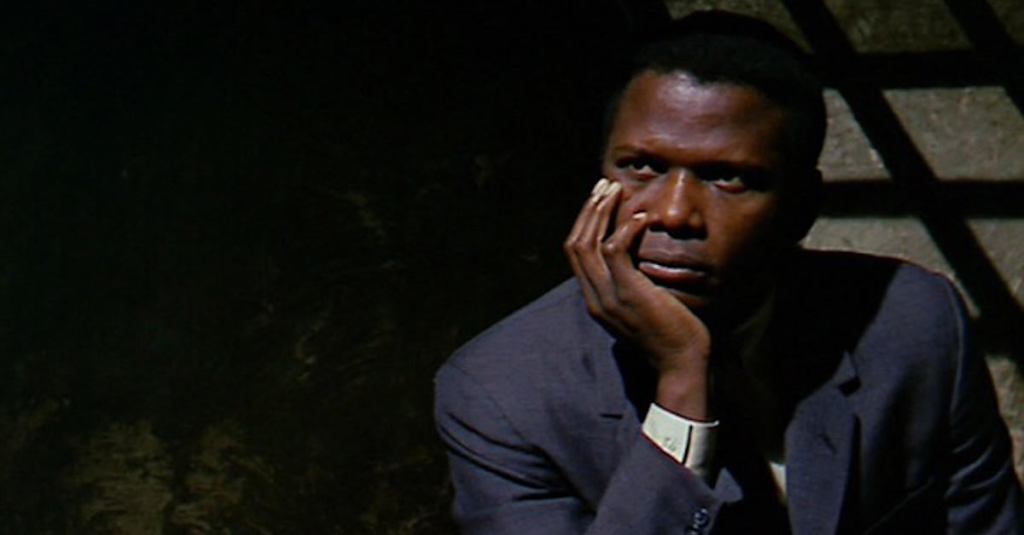Sir Sidney Poitier, famed Academy Award-winning actor and one of the last surviving members of Hollywood’s Golden Age, has died at the age of 94. The first reports of Poitier’s death came from news sources in the Bahamas, the actor’s home, which he proudly represented throughout his career. According to those reports, Poitier’s death was confirmed by Bahamian Minister of Foreign Affairs Fred Mitchell, though no cause of death or further details have been reported (at the time of writing this). A Broadway play about Sidney Poitier’s life and career (titled “Sidney”) was announced in early December.
Videos by ComicBook.com
BREAKING: Beloved Bahamian actor and former ambassador Sir Sidney Poitier has died. He was 94. A Broadway play about the trailblazing career of the visionary actor was announced last month. Sir Sidney's death was confirmed by Minister of Foreign Affairs Fred Mitchell. pic.twitter.com/WVJFlog3tC
— Eyewitness News Bahamas (@ewnewsbahamas) January 7, 2022
Poitier repeatedly broke barriers in Hollywood, starting with being the first black man to win the Oscar for Best Actor in 1964 for his 1963 film Lilies of the Field – the second time he was nominated (first time for The Defiant Ones). It was a meteoric rise for a man who started as the youngest of seven children, the son of Bahamian farmers. However, since he was born prematurely while his family was selling produce in Miami, Florida, Poitier was automatically registered as a full-fledged US citizen. In his teens he moved to Miami and then New York City doing odd jobs; he lied about his age and enlisted in the Army in the later years of World War II (1943); horrors of a job at the VA hospital helping psychiatric patients ultimately pushed Poitier to fake mental illness and obtain a discharge from the armed services.
After the Army, Sidney Poitier found his way to the theater. Initially, his Bahamian accent and lack of singing ability made him the odd man out in American Negro Theater troupes; however, Poitier was determined to shed his accent and push deeper into dramatic performance (as opposed to song and dance). He landed a role in the 1950 film No Way Out playing a black doctor treating a racist white patient (Richard Widmark); that role opened the door to more film roles for Poitier, and he scored his breakout playing a rowdy high schooler in the 1955 film Blackboard Jungle, about an interracial inner-city high school.
Poitier’s big leading role opposite Tony Curtis in The Defiant Ones (as black and white convicts trying to escape custody while chained together) catapulted Poitier to the level of an Oscar-worthy star. He entered the 1960s doing a string of now-classic performances, from the first production of Broadway’s A Raisin in the Sun production to its eventual film production. Lilies of the Field finally brought him the Oscar for Best Actor and solidified Poitier’s name and legacy in history. He didn’t stop there (far from it): Poitier would go on to continue to break barriers onscreen (like 1967’s interracial marriage drama Guess Who’s Coming to Dinner), and achieved commercial success creating franchise characters like detective Virgil Tibbs from In the Heat of the Night, The Call Me MISTER Tibbs! and The Organization. He would go on to direct hit films like the Richar Pryer and Gene Wilder comedy Stir Crazy, or his film with Bill Cosby and Hary Belafonte, Uptown Saturday Night. He made a rare onscreen appearance with Robert Redford, River Phoenix, Sir Ben Kingsley, and Dan Aykroyd in the 1992 crime comedy Sneakers.
Off-screen, Sidney Poitier did no less than serve as an ambassador of the Bahamas to Japan from 1997 to 2007, and ambassador of the Bahamas to UNESCO from 2002 to 2007. He also served on the board of directors of The Walt Disney Company from 1995 to 2003. The extensive list of honors and awards he won in his lifetime include no less than the Oscars, the Grammys, Golden Globes, SAG and Emmy Awards, the Presidential Medal of Freedom, and the Honorary Knighthood that mad him “Sir” Sidney Poitier. No small feats in the life of a single man, which is why Sir Sidney Poitier will forever be an icon.

When the “Sidney” Broadway play was announced last month, playwright Charles Randolph-Wright gave a moving statement about the life and influence of Sidney Poitier – a statement that now fits as a touching Eulogy for the icon and actor:
“The first time I met Sidney Poitier was decades ago when he saw a show I co-wrote and directed in Los Angeles. We went to dinner and I literally could not speak. He said to me, ‘If in any way I have inspired you, you have more than paid me back with what I saw this evening.’ I have held onto those words my entire career. And now to place his astonishing life on stage is the ultimate challenge and the ultimate joy. To have the trust of Mr. Poitier and his family is one of the greatest gifts I have been given – what an honor to get to dramatize the true measure of this monumental man. I look forward to the world discovering the astounding person that is behind one of our most prodigious heroes, a man who continues to inspire.”
Tony Award-winning director Ruben Santiago-Hudson also expressed his love and honor to be handling Poitier’s life story on the stage, adding that:
“Sir Sidney Poitier is clearly one of the greatest actors in the history of cinema. His integrity and standard of excellence set the bar for generations to come. It is an honor to be a part of celebrating the incomparable Sidney Poitier’s monumental career in this play but also the man and his extraordinary life.”
RIP to Sir Sidney Poitier. We offer our condolences to his family, friends, and colleagues in their time of mourning.








